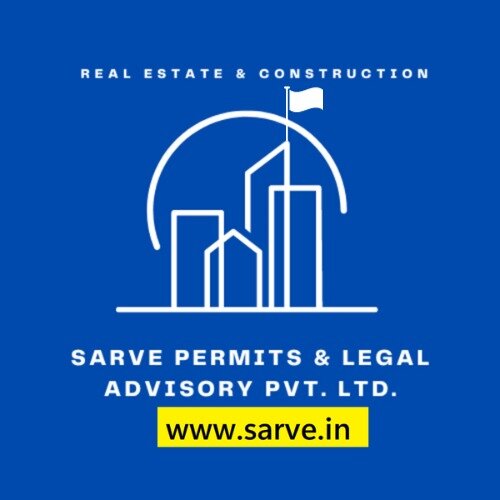Best Mining Law Lawyers in Bengaluru
Share your needs with us, get contacted by law firms.
Free. Takes 2 min.
List of the best lawyers in Bengaluru, India
About Mining Law in Bengaluru, India
Mining Law in Bengaluru, India, governs the exploration, extraction, and management of mineral resources within the state of Karnataka, of which Bengaluru is the capital. These laws are designed to regulate mineral rights, safeguard environmental interests, ensure fair allocation of resources, and facilitate responsible mining practices. Bengaluru, being a major administrative hub, is home to many government offices and legal professionals specializing in mining law. While the Central Government sets the broader legal framework through key acts, such as the Mines and Minerals (Development and Regulation) Act, 1957, local rules and regulations also play a pivotal role in the actual application of mining laws in and around Bengaluru.
Why You May Need a Lawyer
Engaging a mining law lawyer can be crucial for individuals and businesses dealing with any aspect of the mining sector in Bengaluru. Typical situations where you may need legal assistance include:
- Obtaining and renewing mining leases or licenses
- Drafting or reviewing joint venture and mineral rights agreements
- Addressing land acquisition and compensation issues related to mining
- Handling disputes over mineral rights or boundary demarcation
- Navigating environmental clearances and compliance requirements
- Responding to regulatory notices or litigation from authorities
- Advising on royalties, taxes, and related financial obligations
- Ensuring adherence to health, safety, and labor regulations applicable to mine sites
- Tackling issues related to illegal mining or unauthorized extraction
- Understanding the interplay between state laws and central legislations in mining matters
Local Laws Overview
The mining industry in Bengaluru operates under a framework shaped by both central and state laws. The major legislations include:
- Mines and Minerals (Development and Regulation) Act, 1957: This act forms the backbone of mining regulation across India. It outlines procedures for grant, renewal, and cancellation of mining leases, the rights of the lessee, and penalties for illegal mining.
- Mineral Concession Rules, 1960: Details the modalities for obtaining mining leases and quarry licenses, as well as reporting requirements for miners.
- Karnataka Minor Mineral Concession Rules, 1994: Specific to Karnataka, these rules govern the extraction of minor minerals like sand and building stone, setting out the procedures and conditions for licensing and operations.
- Environmental Regulations: Mining activity in and around Bengaluru is also regulated by central and state environmental laws, such as the Environment (Protection) Act, 1986, and the Forest Conservation Act, 1980. Environmental clearances are mandatory before starting operations.
- State Government Notifications: The Karnataka government periodically issues guidelines and directives to address local concerns, such as tightening rules around sand mining or introducing e-auctions for mineral blocks.
- Regulatory Bodies: The Department of Mines and Geology, Karnataka, is the primary regulatory body overseeing mining activities, including grant and renewal of licences, inspections, and enforcement actions.
Frequently Asked Questions
What is the process for obtaining a mining lease in Bengaluru?
Applicants must submit a detailed application to the Department of Mines and Geology, Karnataka, along with relevant documents, maps, and fees. The application is scrutinized, and if deemed eligible, is followed by clearances from environmental and other regulatory bodies before grant of the lease.
Do I need environmental clearance for mining activities?
Yes, environmental clearance is mandatory for most mining projects, especially those exceeding certain thresholds of area or mineral extraction. The Karnataka State Pollution Control Board and the Ministry of Environment, Forest and Climate Change are involved in granting approvals.
Is there a difference between major and minor minerals?
Yes. Major minerals include items like iron ore and limestone, regulated primarily by central rules. Minor minerals include sand, gravel, and building stone, which are managed under state rules such as the Karnataka Minor Mineral Concession Rules, 1994.
What are the penalties for illegal mining?
Illegal mining can attract heavy penalties, including fines, imprisonment, and confiscation of equipment and minerals. The Department of Mines and Geology is authorized to initiate action against offenders.
How are royalties calculated on mined minerals?
Royalties for both major and minor minerals are fixed by the government and are based on either the quantity exported or ad valorem rates. The specific rates differ depending on the mineral in question and are periodically revised by the authorities.
Can mining leases be transferred or sold?
Mining leases can be transferred, but only with prior approval from the relevant authority. The transferee must meet all the eligibility criteria and comply with the same terms as the original lessee.
What documents are required for a mining license application?
Typical documents include proof of identity, details of the land, mining plan, environmental management plan, consent from the landowner if applicable, and a non-refundable application fee. The specific list may vary based on the type of mineral and the land status.
How does the law address environmental impacts of mining?
The law mandates pre-operational clearances, strict compliance with environmental standards, submission of environmental management plans, periodic audits, and restoration of mined lands to minimize adverse impacts.
What rights do landowners have if their land contains minerals?
Landowners may have surface rights over their land, but mineral rights are usually controlled by the state. If mining is to be conducted, landowners are generally entitled to compensation and must be consulted during the lease application process.
Where can disputes related to mining be resolved?
Mining disputes can be resolved through tribunals, civil courts, or specialized authorities like the Mining Tribunal. Alternative dispute resolution methods, such as arbitration, are sometimes available based on agreements between parties.
Additional Resources
If you are seeking more information or assistance regarding mining law in Bengaluru, the following resources can be helpful:
- Department of Mines and Geology, Government of Karnataka: The chief regulatory authority for mining activities
- Karnataka State Pollution Control Board: For queries related to environmental clearances and compliance
- Central Ministry of Mines: For information on central laws, policies, and mineral concessions
- Karnataka Bar Association: To find specialized mining law lawyers in Bengaluru
- Legal aid offices in Bengaluru: For those who may qualify for government-supported legal assistance
Next Steps
If you require legal assistance concerning mining law in Bengaluru, consider the following steps:
- Identify your specific legal needs, such as obtaining a mining lease, addressing a regulatory notice, or resolving a dispute
- Gather all relevant documents and correspondence pertaining to your case
- Seek recommendations for qualified mining law lawyers or contact the Karnataka Bar Association for referrals
- Schedule an initial consultation to discuss your situation and evaluate your options
- Follow your lawyer’s guidance on compliance, documentation, and further actions to safeguard your interests
Lawzana helps you find the best lawyers and law firms in Bengaluru through a curated and pre-screened list of qualified legal professionals. Our platform offers rankings and detailed profiles of attorneys and law firms, allowing you to compare based on practice areas, including Mining Law, experience, and client feedback.
Each profile includes a description of the firm's areas of practice, client reviews, team members and partners, year of establishment, spoken languages, office locations, contact information, social media presence, and any published articles or resources. Most firms on our platform speak English and are experienced in both local and international legal matters.
Get a quote from top-rated law firms in Bengaluru, India — quickly, securely, and without unnecessary hassle.
Disclaimer:
The information provided on this page is for general informational purposes only and does not constitute legal advice. While we strive to ensure the accuracy and relevance of the content, legal information may change over time, and interpretations of the law can vary. You should always consult with a qualified legal professional for advice specific to your situation.
We disclaim all liability for actions taken or not taken based on the content of this page. If you believe any information is incorrect or outdated, please contact us, and we will review and update it where appropriate.











